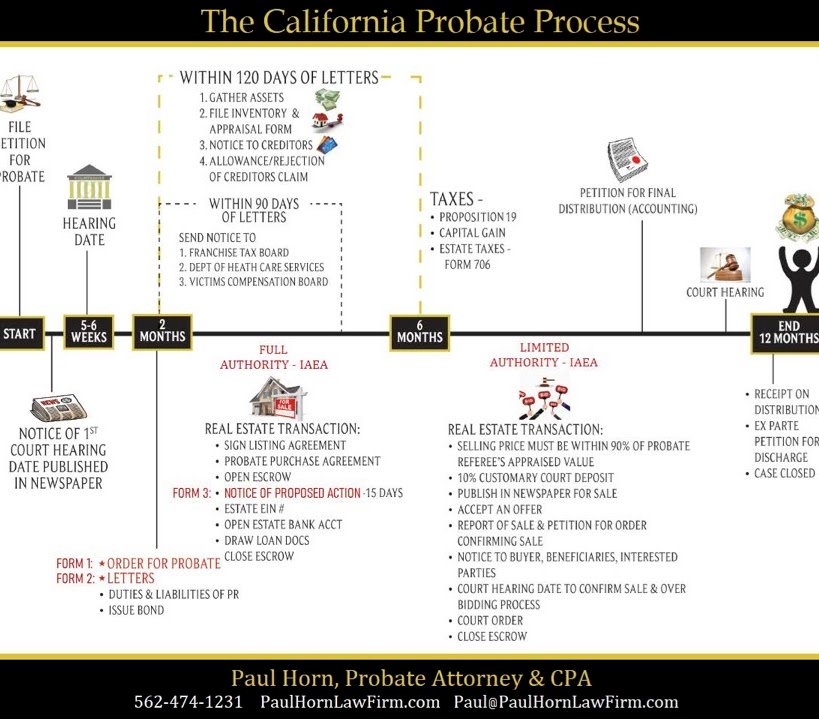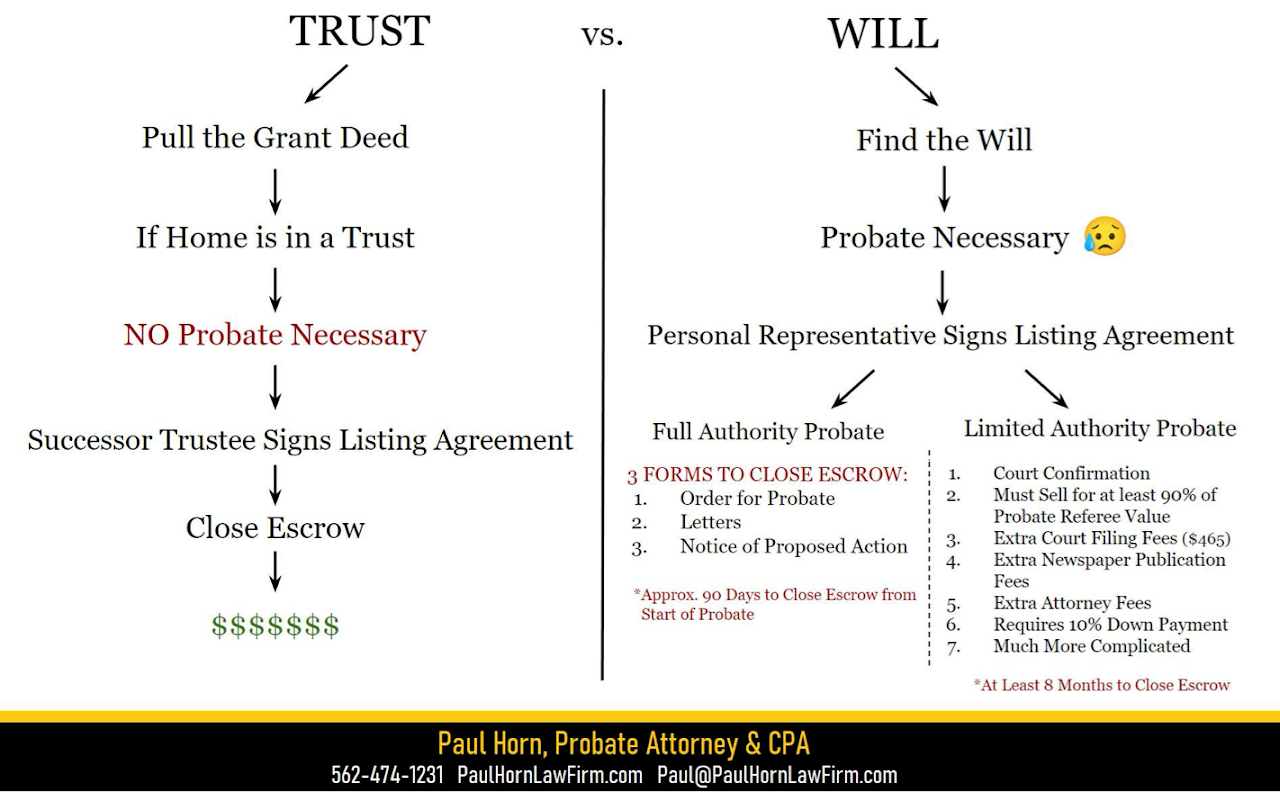FAQ's
What is Probate?
Probate is a court-sanctioned process that allows the transfer of a deceased person’s property to the living heirs. Probate proceedings serve many purposes such as gathering and safeguarding assets, paying all legitimate creditors, and distributing the Estate’s assets to the appropriate heirs.
What is the purpose of probate?
My parents created a basic Will but not a Trust ,is it the same thing?
Many people confuse Wills and Trusts. If the property was held inside a Trust, no probate is required for disposing the real property. If the home was not placed in a trust, the home will likely need to go through the probate proceedings. If the property was placed in a trust, the home can be sold by the ” Executor” of the estate, and avoid the lengthy probate process. The person in charge of selling a deceased owners home absent of a trust is assigned the role as the ” personal representative” and labeled as an ” administrator” in the eyes of the probate court.
My mother/ father just passed away and I beleive they left the property to me, what should I do?
If you are not sure if the property is in a trust, or your loved ones created a trust and didn’t tell you, you should pull a ” grant deed” on the property. I can help you with this step!
Ok, I found out my loved ones created a trust and beleive I am the person in charge, now what?
Are there exceptions to not having to go through the probate process?
Do you have a probate illustration chart?




